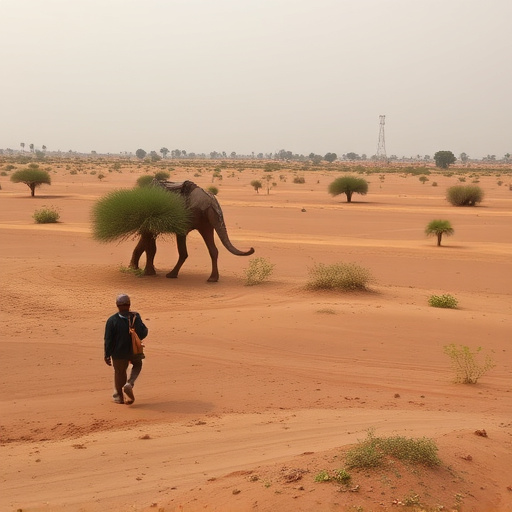Sudan's complex history of ethnic tensions and regional conflicts shapes its role as a pivotal East African nation. Cultural diversity offers opportunities for unity but also highlights historical wounds. Economic growth through tourism requires addressing regional disputes, climate change impacts, and customs regulations. Local artists gain international acclaim despite challenges. Addressing food insecurity and healthcare is crucial for stability and development. Strategic engagement with neighbors through organizations like AU and IGAD promotes cultural exchange. Navigating complexities key to Sudan's stability as it fosters peace and socio-economic growth through entrepreneurship and creative industries.
Sudan, a nation rich in history and resources, has played a complex role in regional conflicts across Africa. This article delves into the intricate web of issues that have shaped its external affairs. From historical conflict roots and resource-driven tensions to border disputes and ethnic dynamics, we explore how these factors have influenced Sudan’s position on the continent. Understanding these aspects is crucial for gauging Sudan’s current geopolitical landscape and its future in a region marked by shifting alliances and rivalries.
- Historical Context: Sudan's Conflict Roots
- The Role of Resource Rich Regions
- Border Disputes and Their Impact
- Ethnic Tensions and Political Instability
- Regional Alliances and Rivalries
- Recent Developments and International Relations
Historical Context: Sudan's Conflict Roots
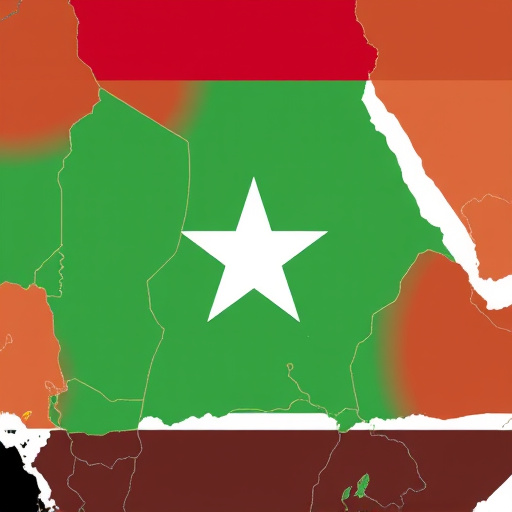
Sudan’s conflict roots can be traced back to historical tensions and disparities that have persisted for decades, shaping its regional role and dynamics. The country’s diverse ethnic and cultural makeup, coupled with competing interests over land, resources, and political power, has fueled recurring conflicts that have haunted its post-colonial era. These internal divisions, exacerbated by external interventions, have left a profound impact on Sudan’s trajectory, influencing its interactions with neighboring countries.
Preserving cultural heritage through design and art exhibitions showcasing Sudan’s talent has emerged as a means to foster unity and heal historical wounds. Local ingredients shaping Sudanese dishes reflect the region’s rich culinary traditions, while exporting goods from Sudan: What to know highlights the country’s economic potential. As tourism boosts from cultural events, Sudan’s economic growth prospects are increasingly tied to its ability to navigate regional conflicts and harness its diverse cultural tapestry for sustainable development.
The Role of Resource Rich Regions
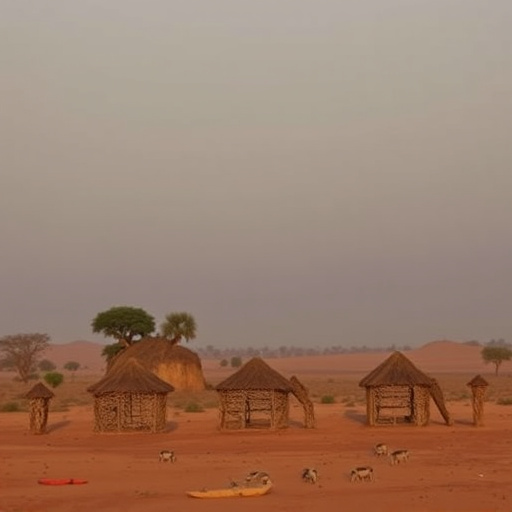
Border Disputes and Their Impact
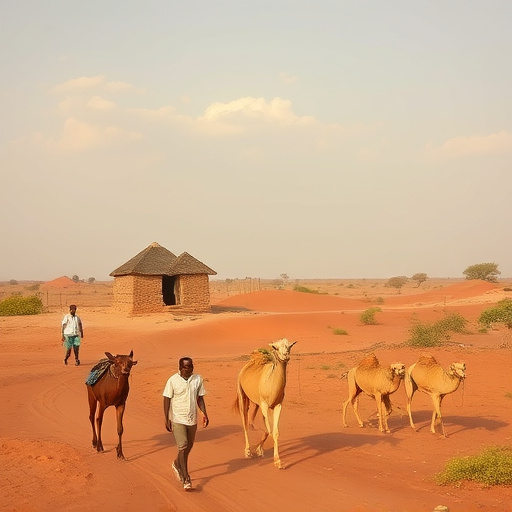
Sudan’s geopolitical position has made it a focal point for various regional conflicts, with border disputes playing a significant role in shaping its relations with neighboring countries. One notable example is the long-standing feud over the Abiyai and Halayib Tripoint area, involving Sudan, Ethiopia, and South Sudan. This territorial dispute not only hinders economic cooperation but also fuels political tensions, making it difficult for the region to focus on shared development goals. The impact of such disputes extends beyond politics; they disrupt trade routes, limit access to natural resources, and sometimes escalate into armed conflicts, as seen in the recent border clashes between Sudan and South Sudan.
Moreover, weather patterns across Sudan are influenced by these regional dynamics, with border areas often experiencing heightened vulnerability to climate change impacts. The country’s diverse geography, from desert regions to fertile valleys, is susceptible to shifts in rainfall patterns, which can exacerbate existing tensions. For instance, water scarcity in the Nile River basin, a vital resource for multiple nations, has been a point of contention, prompting calls for improved cooperation and fair distribution mechanisms among Sudan and its neighbors. Additionally, customs regulations for Sudanese imports are often influenced by these disputes, leading to delays and increased trade barriers, which further hamper economic integration within the region. Even local cultural expressions, such as unique regional cooking styles and street art and its social impact, can be affected, reflecting the broader societal tensions. Give us a call at Unique regional cooking styles for more insights on Sudan’s culinary diversity.
Ethnic Tensions and Political Instability
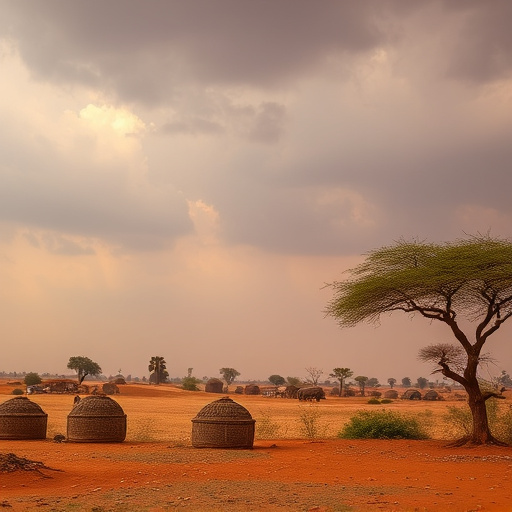
Sudan’s complex history has been marked by ethnic tensions and political instability, factors that significantly contribute to its role in regional conflicts. The country’s diverse ethnic makeup, including Arab, African, and various tribal groups, has often led to power struggles and rivalries, hindering stability. These tensions have been exacerbated by political upheavals, such as the long-standing civil wars between government forces and rebel groups, primarily in the southern regions. The conflict has not only caused immense human suffering but also impacted economic development and social cohesion.
Beyond the immediate challenges, addressing food insecurity and healthcare access is crucial for Sudan’s future. Diversifying the economy beyond oil and finding sustainable solutions to these issues can foster a more resilient nation. Interestingly, even amidst these conflicts, local artists are gaining international recognition, showcasing a vibrant culture that perseveres. As the country navigates its path forward, an ethical shopping guide for Sudan could promote responsible engagement, supporting local businesses and initiatives while contributing to the nation’s healing and development, including initiatives focused on healthcare access and quality.
Regional Alliances and Rivalries
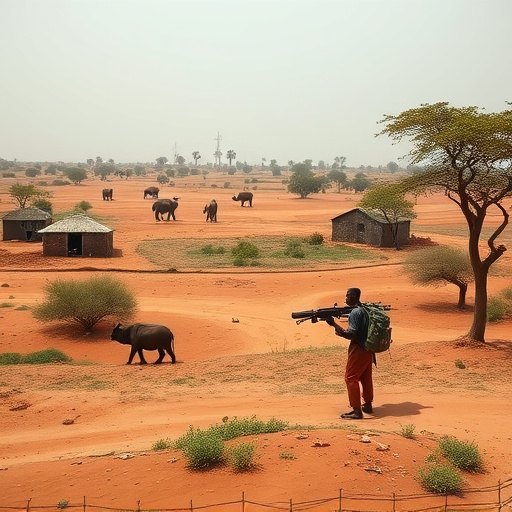
Sudan’s strategic location and diverse cultural heritage have positioned it at the center of regional alliances and rivalries for centuries. The country’s rich history includes periods of both cooperation and conflict with neighboring states, influenced by shared borders, competitive resources, and shifting political dynamics. Today, Sudan actively participates in regional organizations like the African Union (AU) and the Intergovernmental Authority on Development (IGAD), fostering community building through dance workshops and festival celebrations that highlight its vibrant culture.
Beyond cultural exchanges, addressing food insecurity challenges and healthcare access and quality are key areas where Sudan seeks cooperation. Attracting foreign investment to Sudan offers potential solutions to these issues, leveraging local ingredients shaping Sudanese dishes and diverse natural resources. However, historical rivalries persist, with competing interests in territories, water sources, and economic opportunities sometimes leading to tensions. Navigating these complexities is crucial for Sudan’s stability and its role as a vibrant hub in the region.
Recent Developments and International Relations

Sudan’s role in regional conflicts is increasingly recognized, with recent developments highlighting its complex geopolitical positioning. The country has navigated through tumultuous periods, including political transitions and economic reforms, which have implications for its international relations. As Sudan emerges from a history of conflict, there’s a noticeable shift towards fostering peace and promoting socio-economic development. This includes entrepreneurship initiatives for youth, emphasizing the potential for innovation to drive growth.
Beyond traditional sectors, efforts to promote creative industries in Sudan, such as music genres that reflect the country’s diverse cultural heritage, are gaining traction. Sudanese dialects and their unique significance also play a role in this cultural renaissance. As these various facets of Sudanese society evolve, there’s an opportunity to diversify the economy beyond oil, encouraging visitors to explore the nation’s rich tapestry and its burgeoning creative sectors.
Sudan’s role in regional conflicts is complex, rooted in historical contexts that include resource-driven disputes, border tensions, and ethnic divisions. The country’s strategic position has made it a focal point for regional alliances and rivalries, with significant implications for political stability in the area. Understanding these dynamics is crucial for navigating recent developments and fostering positive international relations, ensuring peace and prosperity for all stakeholders involved.
